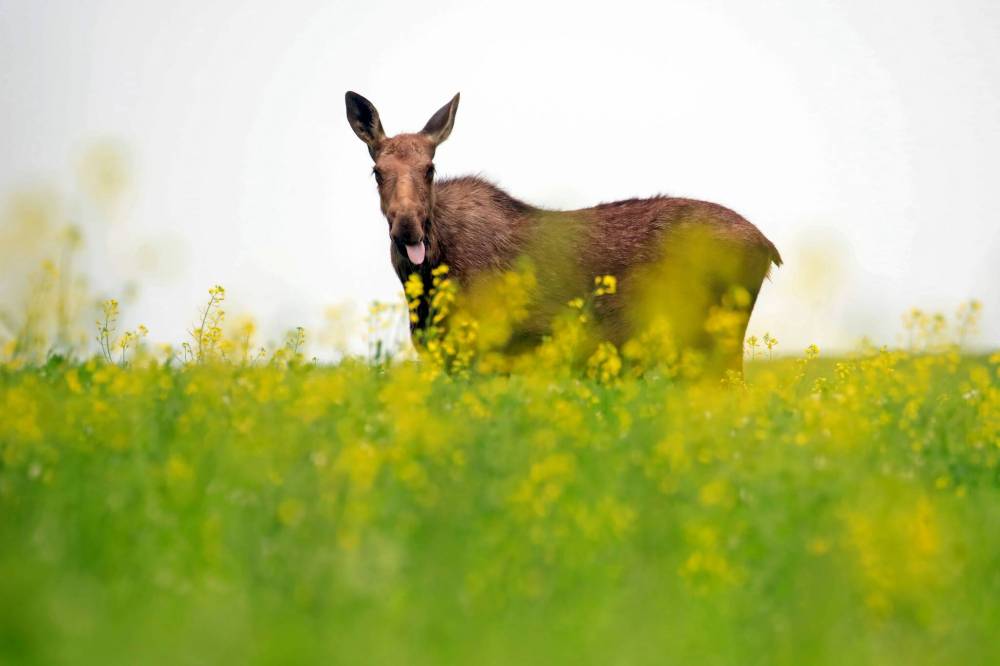Judge dismisses legal challenges over moose licence cuts
Advertisement
Read this article for free:
or
Already have an account? Log in here »
To continue reading, please subscribe:
Monthly Digital Subscription
$0 for the first 4 weeks*
- Enjoy unlimited reading on winnipegfreepress.com
- Read the E-Edition, our digital replica newspaper
- Access News Break, our award-winning app
- Play interactive puzzles
*No charge for 4 weeks then price increases to the regular rate of $19.95 plus GST every four weeks. Offer available to new and qualified returning subscribers only. Cancel any time.
Monthly Digital Subscription
$4.99/week*
- Enjoy unlimited reading on winnipegfreepress.com
- Read the E-Edition, our digital replica newspaper
- Access News Break, our award-winning app
- Play interactive puzzles
*Billed as $19.95 plus GST every four weeks. Cancel any time.
To continue reading, please subscribe:
Add Free Press access to your Brandon Sun subscription for only an additional
$1 for the first 4 weeks*
*Your next subscription payment will increase by $1.00 and you will be charged $16.99 plus GST for four weeks. After four weeks, your payment will increase to $23.99 plus GST every four weeks.
Read unlimited articles for free today:
or
Already have an account? Log in here »
A judge has ruled the provincial government has the right to reduce the number of moose hunting licences, rejecting legal challenges from a First Nation and conservation organization.
Manitoba Court of King’s Bench Justice Brian Bowman dismissed the applications by Pimicikamak Cree Nation and the Manitoba Wildlife Federation, in a ruling released Monday.
They had disputed the province’s 2024 decision to cut the number of licences to 100 from 400 in four of Manitoba’s 62 game hunting areas.

A moose grazes in a field of canola bordering the Trans-Canada Highway west of Brandon in 2023. (File photo)
“Given the grave concerns that were raised by Aboriginal communities, regarding declining moose populations, the (provincial) decision was reasonable and rational, but imperfect,” Bowman wrote in the 10-page decision.
Natural Resources and Indigenous Futures Minister Ian Bushie said the province is working with both the federation and Pimicikamak to “find the right balance for moose hunting in Manitoba.”
“It’s clear we need to work together to ensure resource management is done responsibly while actively improving and investing in data collection to protect Manitoba’s moose population,” Bushie said.
“We want to make sure every Manitoban has the opportunity to access this important resource.”
PCN Chief David Monias, who was in Winnipeg for meetings, did not respond to a request for comment.
Carly Deacon, the wildlife federation’s managing director, said in a statement “the MWF remains committed to promoting a management approach in which the province upholds its responsibility to manage wildlife for all Manitobans — setting harvest limits based on sound science and ensuring healthy populations for generations to come.
“The province of Manitoba continues to erode public access to public lands through last-minute decisions made behind closed doors and without scientific justification. We are appealing to the Court of Appeal to bring clarity and guidance to future government decisions affecting our province’s natural resources.”
The wildlife federation had argued the province’s decision was “unreasonable” and said the move was made in bad faith.
“I cannot find any evidence to support an argument of bad faith. Manitoba is clear that the decision was made ‘to balance the population sustainability and needs of harvesters after receiving input from Aboriginal communities,” Bowman wrote.
The judge said the reduction of licences issued to non-Indigenous hunters was consistent with a past court decision that said: “Where there are threats of serious or irreversible damage, lack of full scientific certainty should not be used as a reason for postponing measures to prevent environmental degradation.”
Pimicikamak argued the province should not have issued any licences on its traditional territory.
Bowman, in denying the First Nation’s application for an injunction to stop non-Indigenous hunters, said it should file a statement of claim instead of an application to the courts, because it would be determining rights “not appropriately settled through an application.”
The judge did not rule whether the First Nation’s rights were violated by the licensing decision.
Pimicikamak, also known as Cross Lake, is 520 kilometres north of Winnipeg.
kevin.rollason@freepress.mb.ca

Kevin Rollason is a general assignment reporter at the Free Press. He graduated from Western University with a Masters of Journalism in 1985 and worked at the Winnipeg Sun until 1988, when he joined the Free Press. He has served as the Free Press’s city hall and law courts reporter and has won several awards, including a National Newspaper Award. Read more about Kevin.
Every piece of reporting Kevin produces is reviewed by an editing team before it is posted online or published in print — part of the Free Press‘s tradition, since 1872, of producing reliable independent journalism. Read more about Free Press’s history and mandate, and learn how our newsroom operates.
Our newsroom depends on a growing audience of readers to power our journalism. If you are not a paid reader, please consider becoming a subscriber.
Our newsroom depends on its audience of readers to power our journalism. Thank you for your support.
History
Updated on Thursday, October 23, 2025 6:08 PM CDT: Updates with final









